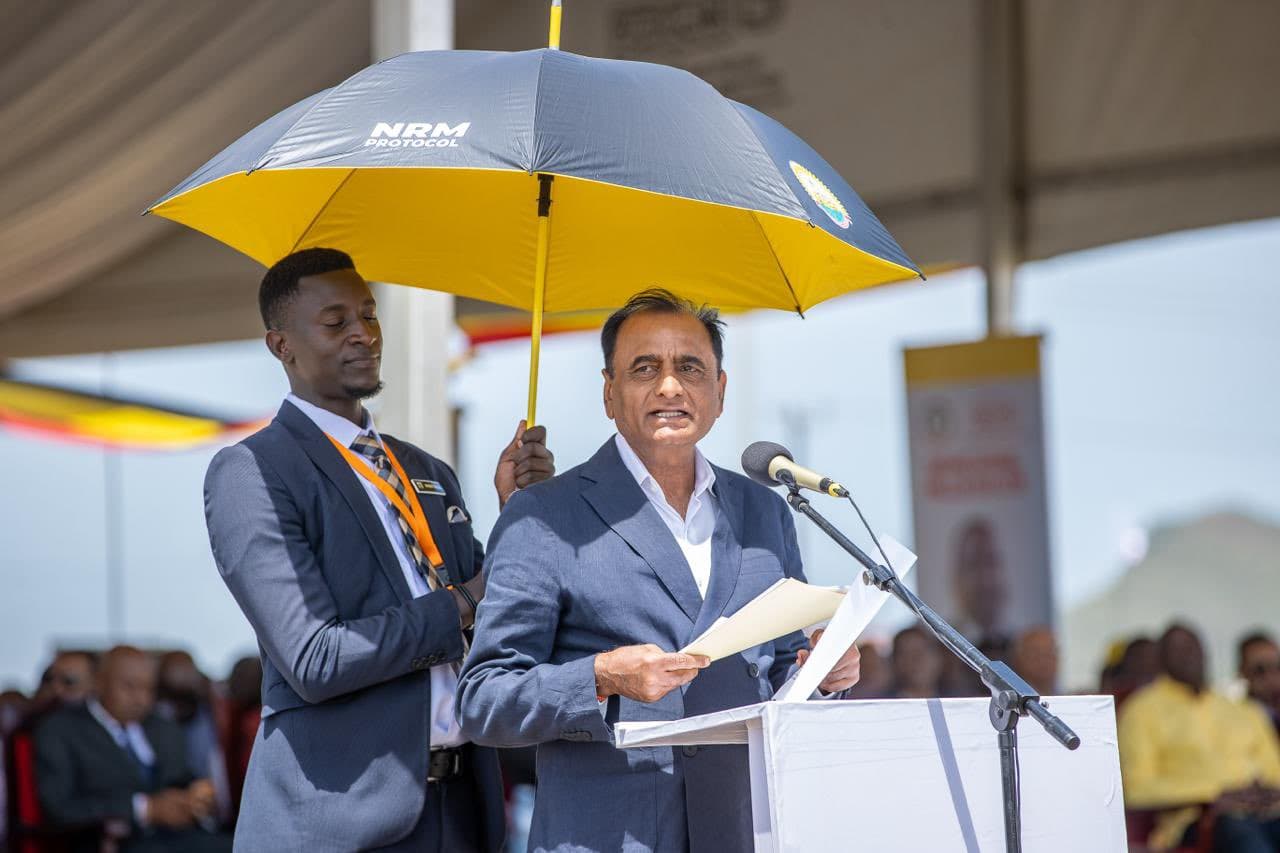We're loading the full news article for you. This includes the article content, images, author information, and related articles.
Industrialist Narendra Raval’s assertion that two decades of President William Ruto's leadership is necessary to solve unemployment has sparked a fierce national conversation, pitting his long-term industrial vision against Kenya's urgent job crisis and mixed economic data.

NAIROBI, KENYA – A provocative statement by one of Kenya's leading industrialists, Narendra Raval, suggesting President William Ruto should govern for 20 years to eradicate unemployment, has ignited a sharp debate on the country's economic trajectory and governance. The comments, made on Sunday, 23 November 2025, during the launch of a new Devki Group steel factory in Tororo, Uganda, have drawn both praise and scrutiny, placing a spotlight on the administration's policies against a backdrop of challenging economic realities for many Kenyans.
“Again, I will repeat, although the Constitution does not allow, I will say you should be there for 20 years,” Mr. Raval stated, addressing an audience that included President Ruto. “If you want to remove unemployment in the country, we need this force.” The Devki Group Chairman, whose conglomerate is a major player in steel and cement manufacturing, lauded the President for what he described as transformative reforms, including stabilizing the Kenyan shilling, reducing inflation from over 9% to around 4%, and tripling foreign direct investment.
Mr. Raval's optimism contrasts with a complex economic landscape detailed by national and international bodies. According to the Kenya National Bureau of Statistics (KNBS) in its 2025 Economic Survey, the economy created approximately 782,300 new jobs in 2024, a slowdown from the 848,100 created the previous year. Crucially, the informal sector accounted for 90% of these new jobs, indicating persistent struggles within the formal sector to absorb the thousands of graduates entering the market annually.
The World Bank has projected a slight increase in Kenya's unemployment rate to 5.7% in 2024 from 5.6% in 2023, citing a tough economic environment and slowdowns in business activity. While the government points to a moderated inflation rate and a stabilized shilling, an Infotrak survey from September 2025 found that 40% of Kenyan households cited escalating taxation as their primary source of financial strain. The youth, a key demographic, face a particularly stark situation. The Federation of Kenyan Employers (FKE) has previously highlighted a youth unemployment rate of 67% for those aged 15-34, a figure significantly higher than the national average.
President Ruto's administration has anchored its job creation strategy on the Bottom-Up Economic Transformation Agenda (BETA), focusing on sectors like affordable housing, digital economy, and support for Micro, Small, and Medium Enterprises (MSMEs). A study by the Kenya Institute for Public Policy Research and Analysis (KIPPRA) projected that BETA could generate over 1.7 million jobs by 2027 if growth targets are met. Government reports claim the affordable housing program alone has created over 188,000 jobs.
However, public sentiment often reflects a disconnect between policy and daily life. Critics point to the high cost of living, increased taxes, and a national debt that has swelled to KSh 11.7 trillion as significant burdens. While the government's official data shows progress in certain areas, many Kenyans report that the benefits of these macroeconomic achievements have yet to trickle down.
The business community, represented by organizations like the Kenya Private Sector Alliance (KEPSA), has partnered with the government on initiatives aiming to create millions of jobs. KEPSA's K-YEEAP program, for instance, targets the creation of five million jobs by 2027 by supporting small businesses and startups. This aligns with Mr. Raval's perspective that consistent, business-friendly leadership is essential for long-term employment growth.
Conversely, labour organizations like the Central Organisation of Trade Unions (COTU-K) have consistently advocated for policies that ensure the creation of *decent* work, not just jobs. COTU has pushed for social protection measures and has been critical of the shrinking formal employment sector, where worker protections and benefits are more established. In July 2024, COTU Secretary-General Francis Atwoli proposed a radical hiring plan requiring public and private sectors to employ youths equivalent to 10% of their workforce to tackle the growing youth unemployment crisis.
Economists remain divided, with some acknowledging the administration's efforts in stabilizing the macro-economy while others argue that the current strategies, heavily focused on taxation, may be stifling the very private sector growth needed for formal job creation. Mr. Raval's call for a 20-year presidency, while framed as an economic argument, also raises profound constitutional and democratic questions, which he acknowledged in his remarks. This is not the first time the industrialist has made such a proposal, having made similar comments in 2022.
Ultimately, the debate sparked by the Devki chief executive underscores the central challenge facing Kenya: how to translate macroeconomic stability and industrial growth into tangible, widespread, and decent employment for a young and rapidly growing population. While the vision of a fully employed nation is shared by all, the roadmap—and the timeline—remains a subject of intense national discussion.
Keep the conversation in one place—threads here stay linked to the story and in the forums.
Sign in to start a discussion
Start a conversation about this story and keep it linked here.
Other hot threads
E-sports and Gaming Community in Kenya
Active 9 months ago
The Role of Technology in Modern Agriculture (AgriTech)
Active 9 months ago
Popular Recreational Activities Across Counties
Active 9 months ago
Investing in Youth Sports Development Programs
Active 9 months ago
Key figures and persons of interest featured in this article